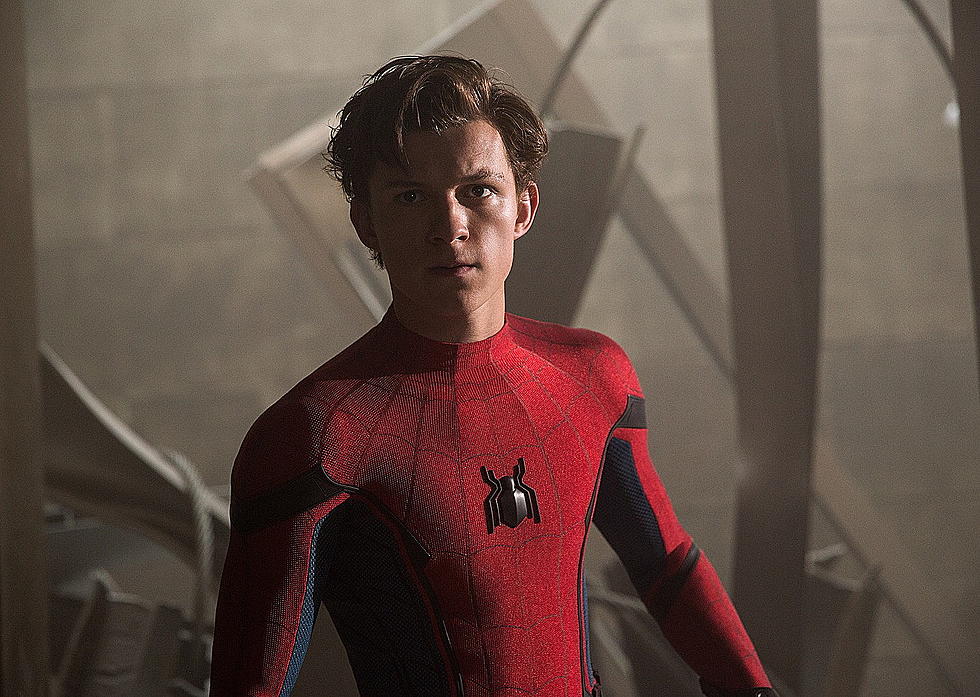
Led Zeppelin ‘Led Zeppelin': A Track-by-Track Guide
Arriving Jan. 12, 1969, Led Zeppelin's self-titled debut arrived out of the ashes of guitarist Jimmy Page's former group, the Yardbirds. With singer Robert Plant, bassist John Paul Jones and drummer John Bonham, the record built upon the heavy blues sound created by Cream, the Jimi Hendrix Experience and Page's one-time bandmate Jeff Beck by adding elements of American and British folk and Indian music into the mix. Along with Black Sabbath and the Who, as well as less popular but influential acts such as Blue Cheer, they would also help pave the way for heavy metal in the '70s.
But for all the originality found in the virtuoso musicianship and Page's production, Led Zeppelin has a checkered history with regards to songwriting credits. Although Willie Dixon was listed as the writer of "You Shook Me" and "I Can't Quit You Baby," four of the seven other tracks have roots in songs composed by other artists. Below is UCR's guide to all nine songs, with the stories behind their creation.
"Good Times Bad Times"
As the opening track on Led Zeppelin's first album and their debut single, it was the first music from them that many people heard. And yet, according to reports, the band rarely played "Good Times Bad Times" in concert. Bits of the song were occasionally included in their early days as part of a full performance of its b-side, "Communication Breakdown," but it's believed that the only time they played it in its entirety was their 2007 reunion concert, when it opened the show. Perhaps John Paul Jones explained why they never played the whole song until then when he spoke with Rolling Stone after the show. "That's the hardest riff I ever wrote, the hardest to play," he said. "But it was a good starter, because everybody had to focus."
"Babe I'm Gonna Leave You"
Jimmy Page and Joan Baez heard "Babe I'm Gonna Leave You" on Joan Baez's In Concert, Part 1 record. Baez didn't know that the song was written by Anne Johannsen (later Bredon) -- she'd learned it from another folksinger, Janet Smith -- so she credited it, as was often the case with folk songs, as traditional, with Baez providing the arrangement. Zeppelin followed suit, with Page credited as the arranger. In the '80s, Smith heard Led Zeppelin's version and contacted Bredon about the lack of credit. Bredon worked out a deal with Zeppelin's publishing company, Superhype, and, since the early '90s, has received 50 percent of the songwriter's royalties.
"You Shook Me"
As with "Babe I'm Gonna Leave You," "You Shook Me" was another example of what Pete Seeger called the "folk process," whereby music evolves by building upon existing works. In 1962, Muddy Waters took an instrumental recorded a year earlier by one of his Chicago blues contemporaries, Earl Hooker, added lyrics by Willie Dixon, which he sung in tandem with Hooker's guitar, and released it as "You Shook Me."
Six years later, Waters' track was reinterpreted twice within a few months of each other. Jeff Beck recorded a blistering take for Truth, but Led Zeppelin's version redefined the song even further. In addition to more-than doubling the original's length (Muddy's was under three minutes while Zeppelin's lasted nearly six-and-a-half minutes), with Plant wailing away on the harmonica and Jones, who also played on Beck's rendition, taking a keyboard solo. Plant also changed the lyrics to have the woman in question leaving the singer instead of being involved in an extramarital affair.
"Dazed and Confused"
Originally written by Jake Holmes, who didn't receive credit until he sued the band in 2011, "Dazed and Confused" was first heard by Page after Holmes opened up for the Yardbirds in 1967. But as with the other covers, it underwent a few changes by the time Led Zeppelin recorded it, including the famous solo where he played guitar with a violin bow. Although Page didn't invent the technique -- it was used by Eddie Phillips of the Creation on "Making Time" -- he learned about it through David McCallum Sr., with whom Page was chatting during a session.
As Page recalled, "[O]ne of the violinists came to me one day and he said, 'Have you ever considered playing a guitar with a bow?' And I said, 'Well, I don't think it'll work.' Because the strings are uniformed wheres a violin is arched. And he said 'Well here's my bow. Would you like to try?' And I said 'Absolutely.' So I tried it and i could see there was massive potential. After that I went and bought my own bow."
"Your Time Is Gonna Come"
Page pulled out another weapon from his bag on "Your Time Is Gonna Come," the track that opens the second side, with a pedal steel guitar entering the mix during the first chorus. As with "Good Times Bad Times," the song didn't feature into their live set, with its only known performance coming at a 1971 show in Tokyo during the "Whole Lotta Love" medley. However, Page brought it out during his 1999-2000 tour with the Black Crowes, as heard on their Live at the Greek: Excess All Areas live album.
"Black Mountain Side"
The instrumental "Black Mountain Side" is another instance on the record where the folk process calls into question the authorship of the work. Bert Jansch, a fixture on the British folk scene, recorded his own version of the traditional Irish folk song "Down by Blackwaterside" in 1966. Page adapted Jansch's arrangement, added a tabla for percussion, gave it a new name and claimed it as an original.
By the time of Led Zeppelin's release, Jansch had already formed Pentangle and released a pair of albums. A year later, Basket of Light reached No. 5 on the British album chart. They split in 1973, with Jansch eventually returning to his solo career, although several reunions followed until his death in 2011.
As Colin Harper noted in Dazzling Stranger: Bert Jansch and the British Folk and Blues Revival, Jansch never sued Page because he was never in a position to afford the legal costs involved. But it remained a sore point with him throughout his life, particularly when his path crossed with Page's.
"The thing I've noticed about Jimmy whenever we meet is that he can't look me in the eye," Jansch said in 2007, later adding, "Well, he ripped me off, didn't he? Or let's just say he learned from me. I wouldn't want to sound impolite."
"Communication Breakdown"
While much has been made about Led Zeppelin's influence on the development of '70s hard rock and metal, and punk's overall disdain for those styles, "Communication Breakdown" turned out to be influential on Johnny Ramone. As Mickey Leigh of the Rattlers wrote in I Slept with Joey Ramone: A Family Memoir, he performed the riff note-for-note for the future Ramones guitarist, and he dug how Page created the riff's power using only downstrokes.
“Most people don’t realize that," Leigh recalled Ramone as saying. "That’s how rock & roll should be played. All of it! Everything should be a down stroke.”
Drummer Marky Ramone confirmed the influence, saying that Johnny "loves Jimmy Page and he also likes 'Communication Breakdown.' Even though he’s not the lead guitar player, those are rhythm songs. That’s why he likes that stuff.”
"I Can't Quit You Baby"
Another Willie Dixon composition, "I Can't Quit You Baby" was made famous by Otis Rush in 1956. But for all of the inspired call-and-response interplay between Plant's vocals and Page's guitar, the take released on Led Zeppelin has never been a favorite of the guitarist.
"There are mistakes in it, but it doesn't make any difference," he told Guitar Player in 1977. "I'll always leave the mistakes in. I can't help it. The timing bits on the A and Bb parts [the power chords] are right, though it might sound wrong. The timing just sounds off. But there are some wrong notes. You've got to be reasonably honest about it."
"How Many More Times"
While many of the tracks on Led Zeppelin have their antecedents in one specific song, the eight-and-a-half minute album-closing "How Many More Times" drew its influence from several sources.
"That has the kitchen sink on it, doesn’t it?" Page told Brad Tolinski. "It was made up of little pieces I developed when I was with the Yardbirds, as were other numbers such as 'Dazed and Confused.' It was played live in the studio with cues and nods.
As Aaron Krerowicz noted, the bass line that kicks it off has its roots in the Yardbirds' live cover of Howlin' Wolf's "Smokestack Lightning," and its title and opening verse were rewritten from another Wolf track, "How Many More Years," while other verses borrow from Albert King's "The Hunter" and Jimmie Rodgers' "Kisses Sweeter Than Wine." The rhythm from another cut off Jeff Beck's Truth, the Page-composed "Beck's Bolero," shows up around the three-minute mark.
Page brought back the bow for the solo. "I think I did some good things with the bow on that track," he told Tolinski, "but I really got much better with it later on. For example, I think there is some really serious bow playing on the live album [The Song Remains the Same]. I think some of the melodic lines are pretty incredible. I remember being really surprised with it when I heard it played back. I thought, Boy, that really was an innovation that meant something."
Led Zeppelin Albums Ranked Worst to Best
More From Eagle 106.3










